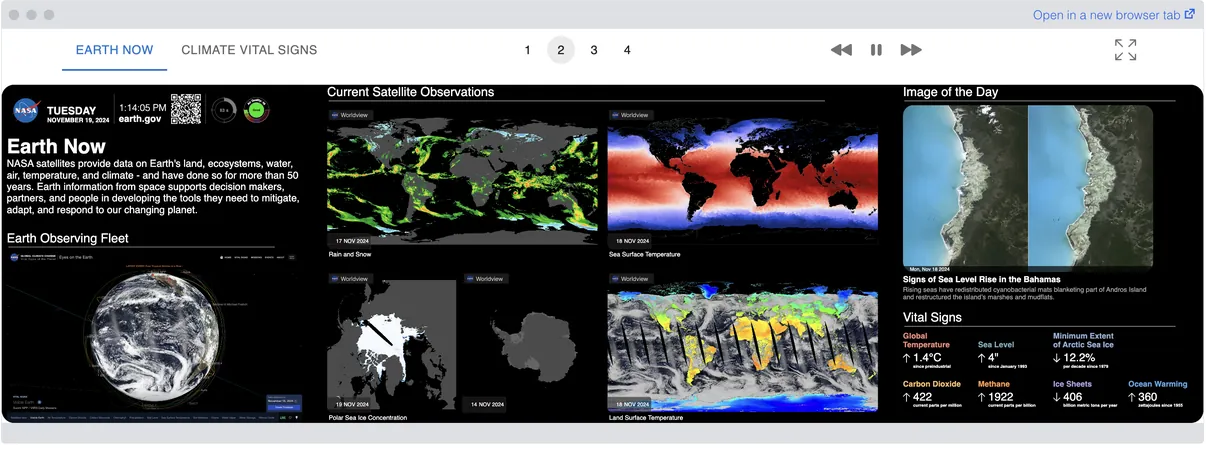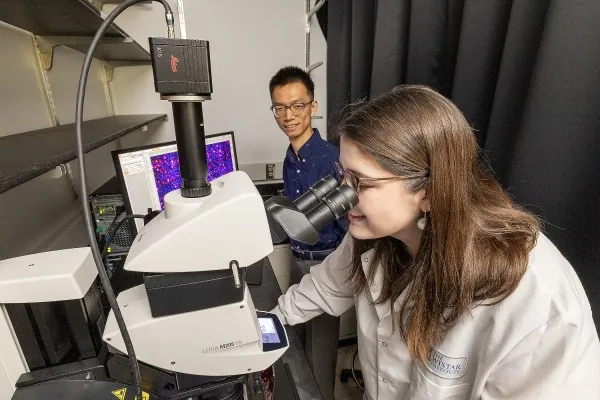
NASA's Nicky Fox Unveils the Future of Space Exploration at SC2024 Keynote
2024-11-19
Author: Nur
Overview of Keynote Address
In an electrifying keynote address at SC2024, NASA's Nicky (Nicola) Fox captivated the audience with a breathtaking overview of current and future NASA missions, spotlighting the pivotal role of advanced computation in transforming space exploration. Fox, who serves as the Associate Administrator for NASA’s Science Mission Directorate, outlined ambitious plans for the agency, including the integration of artificial intelligence (AI) into their operations.
Integration of AI in NASA's Missions
Fox announced, “We are developing a large language model to serve all of NASA’s scientific needs, alongside five specialized foundation models dedicated to earth science, biological and physical sciences, astrophysics, planetary science, and heliophysics.” She elaborated on the heliophysics model, stressing its reliance on the vast archives of Solar Dynamics Observatory data, facilitating various scientific applications such as solar wind prediction and the analysis of extreme ultraviolet images.
AI's Role in Solar Research
Her passionate presentation explored the complex dynamics of solar phenomena and highlighted the groundbreaking potential of AI in addressing these challenges. “Foundation models allow us a fresh perspective on integrated solar dynamics, fundamentally changing how we approach research and data management across all NASA divisions,” noted Fox.
Retrospective on NASA's Technological Evolution
Moreover, Fox presented an insightful retrospective on NASA's technological evolution, reminiscing about the Voyager missions launched in 1977. “The Voyager missions fundamentally altered our perception of our planet and the broader solar system, standing as testaments to how computational advancements continue to reshape exploration today.” She underscored the importance of these missions, which have now traversed into interstellar space, contributing to our understanding of cosmic phenomena.
Commitment to Open Science
In addition to past missions, Fox spotlighted ongoing projects and NASA's commitment to open science. “Our principle of transparency ensures that all scientific data, software, and models are accessible, promoting collaboration and ultimately benefiting society,” she explained. With an ambitious target to process over 500 petabytes of data by fiscal year 2029, the organization underscores its commitment to harnessing powerful computing technologies for scientific discovery.
Monitoring Climate Change with Technology
One of the most striking visualizations shown was of the active fires monitored by NASA’s satellite technologies in response to recent wildfires across North America. Fox demonstrated how groundbreaking instruments enable precise monitoring, which is critical for real-time response and understanding the complexities of climate change.
Advancements in Observational Technologies
The advancements in observational technologies weren't limited to Earth. Fox discussed the James Webb Space Telescope, an engineering marvel with its 21-foot segmented mirror, which has unlocked unprecedented images of the universe. Fox emphasized how the project pushed the boundaries of integrated computer modeling, aiding developments in various scientific fields beyond astronomy.
Search for Extraterrestrial Life
When addressing one of the most pressing questions in scientific exploration—could there be life beyond Earth?—Fox mentioned NASA's findings on exoplanets. The agency has confirmed over 5,600 exoplanets orbiting distant stars, expanding our understanding of potential life-sustaining environments beyond our solar system. She referenced LP 791-18d, an exciting discovery that could exhibit volcanic activity akin to Jupiter’s moon Io, emphasizing the need for advanced technologies in ongoing space observation.
Conclusion of the Keynote Address
Fox's keynote at SC2024 resonated with both experienced scientists and budding astronomers alike. As she concluded her talk, it was clear that NASA stands at the forefront of a new era in space exploration—one driven by innovative technologies and the limitless curiosity that fuels humanity's quest to understand the cosmos.
Stay tuned for more updates as SC2024 plans to make the keynote widely available online, capturing the essence of space exploration and the future models that will shape it.



 Brasil (PT)
Brasil (PT)
 Canada (EN)
Canada (EN)
 Chile (ES)
Chile (ES)
 España (ES)
España (ES)
 France (FR)
France (FR)
 Hong Kong (EN)
Hong Kong (EN)
 Italia (IT)
Italia (IT)
 日本 (JA)
日本 (JA)
 Magyarország (HU)
Magyarország (HU)
 Norge (NO)
Norge (NO)
 Polska (PL)
Polska (PL)
 Schweiz (DE)
Schweiz (DE)
 Singapore (EN)
Singapore (EN)
 Sverige (SV)
Sverige (SV)
 Suomi (FI)
Suomi (FI)
 Türkiye (TR)
Türkiye (TR)